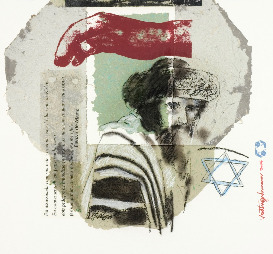Intertextualidade irônica em Jn 3:7-4:2
DOI:
https://doi.org/10.17851/1982-3053.12.23.160-177Palavras-chave:
Intertextualidade, Narrativa, IroniaResumo
Este artigo visa examinar alguns aspectos literários em Jonas, bem como verificar as relações intertextuais entre o texto de Jn 3:7-4:2 e Êx 32-34, analisando os aspectos irônicos presentes nas conexões entre as duas narrativas, principalmente, na relação entre os profetas Jonas e Moisés, no qual se destaca a forma irônica com a qual o autor apresenta as ações do profeta.
Downloads
Referências
ALLEN, Leslie C. The Books of Joel, Obadiah, Jonah and Micah: New International Commentary on The Old Testament. Grand Rapids: Willian B. Eerdmans Publishing Company, 1976.
ALTER, Robert; KERMODE, Frank (Ed.). Guia literário da Bíblia. Trad. Raul Fiker. São Paulo: Editora Unesp, 1997.
ALTER, Robert. KERMODE, Frank (Ed.). The World of biblical literature. United States: Basic Books , 1992.
AMIT, Yairah. Reading Biblical Narratives: literary criticism and the Hebrew Bible. Minneapolis: Fortress Press, 2001.
BARKER, Glenn W.; WATTS, John D. W. Word biblical commentary: Hosea-Jonah. Waco: Word Books, 1987.
BANKS, William L. Jonah: the reluctant prophet. Chicago: Moody Bible Institute of Chicago, 1966.
BICKERMAN, Elias J. The Two Mistakes of the Prophet Jonah. In: TROPPER Amram D. (Ed.). Studies in Jewish and Christian History. Ancient Judaism and Early Christianity. v. 1. Leiden: Brill, 2007. p. 23-70.
BODA, M. J; MCCONVILLE, J. G. Dictionary of the Old Testament: Prophets. Illinois: InterVasity Press, 2012.
CHISHOLM JR., Robert B. Handbook on the Prophets: Isaiah, Jeremiah, Lamentations, Ezekiel, Daniel, Minor prophets. Grand Rapids: Baker Academic 2002.
CHISHOLM JR., Robert B. Interpreting the minor prophets. Grand Rapids: Zondervan Publishing House, 1990.
DAVIDSON, Benjamim. The Analytical Hebrew and Chaldee Lexicon: Every Word And Inflection of the Hebrew Old Testament Arranged Alphabetically and With Grammatical Analyses. Massachusetts: Hendrickson, 2014.
DOZEMAN, Thomas B. Inner-Biblical Interpretation of Yahweh’s Gracious and Compassionate Character. Journal of Biblical Literature, v. 108, n. 2, p. 207-223, 1989.
ELLUL, Jacques. The Judgment of Jonah. Grand Rapids: William B. Eerdmans Publishing Company, 1971.
GOOD, Edwin M. Irony in the Old Testament. Sheffield: The Almond Press, 1981.
HARRISON, R. K.; ALLEN, Leslie C. The books of Joel, Obadiah, Jonah and Micah. Grand Rapids: William B. Eerdmans Publishing Company, 1987.
HOLBERT, John C. Deliverance Belongs to Yahweh!: Satire in the Book of Jonah. Journal of the Study Old Testament, v. 6, n. 21, p. 59-81, Out. 1981.
KIM, H. C. P. Jonah Read Intertextually. Journal of Biblical Literature, v. 126, n. 3 p. 497-528, Fall, 2007.
KLEIN, Lilian R. The Triumph of Irony in the Book of Judges. Journal for the Study of the Old Testament Supplement Series, v. 68; Bible and Literature Series, v. 14. Sheffield: Sheffield Academic Press, 1989.
KOCH, J. G. V; BENTES, A. C; CAVALCANTE, M. M. Intertextualidade: diálogos possíveis. São Paulo: Cortez, 2012.
LANDES, G. M. The Kerygma of the book of Jonah: The Contextual Interpretation of the Jonah Psalm. Interpretation, v. 21, n. 1, p. 3-31, Jan. 1967.
LIMBURG, James. Jonah: A Commentary. The Old Testament Library. Louisville: Westminster John Knox Press, 1993.
NOGALSKI, James D. Redactional Processes in the Book of the Twelve. Beihefte zur Zeitschrift für die alttestamentliche Wissenschaft, v. 218; Berlin and New York: Walter de Gruyter, 1993.
MILES, J.A. Laughing at the Bible: Jonah as Parody. The Jewish Quarterly Review, New Series, v. 65, n. 3, p. 168-181, Jan. 1975.
PAGE, Frank; SMITH, Billy K. Amos, Obadiah, Jonah: An Exegetical and Theological Exposition of Holy Scripture, v. 19, New American Commentary. United States: B&H Publishing Group, 1995.
SASSON, J. M. Anchor Bible 24B: Jonah: A new translation with introduction, commentary, and interpretation. London: Yale University Press, 2008. p. 7–29.
SHARP, Carolyn, H. Irony and Meaning in the Hebrew Bible. Bloomington: Indiana University Press, 2009.
SIMON, Uriel. The JPS Bible Commentary: Jonah. Philadelphia: Jewish Publication Society, 1999.
STERNBERG, Meir. The Poetics of Biblical Narrative: ideological literatures and the drama of reading. Bloomington: Indiana University Press, 2009.
STUART, Douglas; HUBBARD, David Allan. Word biblical commentary: Hosea-Jonah. Waco: Word Books, 1987.
SWEENEY, M. A. The Twelve Prophets: Hosea, Joel, Amos, Obadiah, Jonah. Berit Olam series (v. 1). Collegeville, MN: The Liturgical Press, 2000.
TRIBLE, P. Rethorical Criticism: Context, Method and the Book of Jonah. Guides to Biblical Scholarship. Minneapolis: Fortress, 1994.
WEST, Mona. Irony in the book of Jonah: Audience identification with hero, Perspectives in Religious Studies, v. 11, n. 3, p. 233-242, Fall, 1984.
WOLFF, H. Walter. Obadiah and Jonah. Minneapolis: Augsburg Publishing House, 1986.
Downloads
Publicado
Edição
Seção
Licença
O autor cede os direitos autorais à revista Arquivo Maaravi. Os direitos de licenciamento utilizados pelo periódico estão sob a Licença Creative Commons do tipo atribuição BY: são permitidos o compartilhamento (cópia e distribuição do material em qualquer meio ou formato) e adaptação (remix, transformação e criação de material a partir do conteúdo assim licenciado para quaisquer fins, inclusive comerciais.











